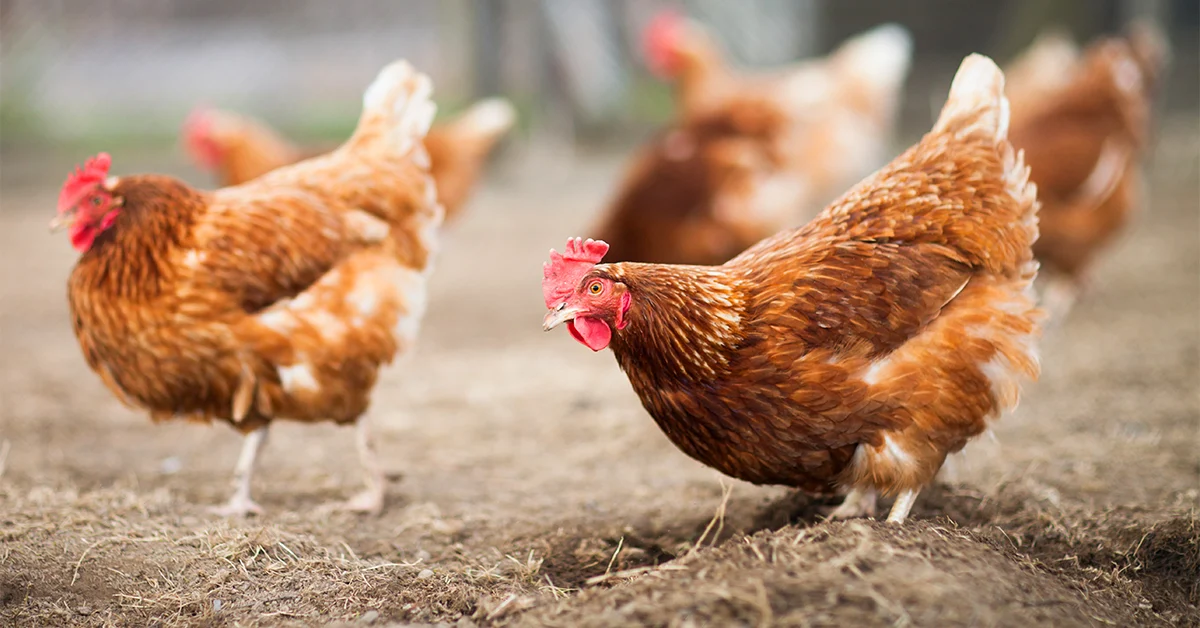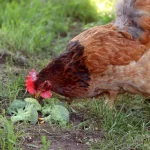Mangoes are juicy and sweet fruits that many people love to eat. But can you safely share these yummy fruits with your chickens? These tasty tropical fruits are packed with good things like vitamins and antioxidants, which makes them a great addition to your chickens’ diet. Not only are mangoes healthy for your chickens, but they also help your chickens bond with each other and keep their minds active, making them happier. Plus, if you have mango trees where you live, they give your chickens shade and can even help keep bugs away naturally. Let’s find out more about the good things about feeding mangoes to your chickens, what to be careful about, and some tips to make it a fun and healthy experience for you and your feathered friends.
Nutritional Benefits
1. Rich in Vitamins
| Vitamin | Benefits for Chickens |
|---|---|
| Vitamin A | Supports eye health and immunity. |
| Vitamin C | Promotes immune system strength. |
| Vitamin E | Aids in maintaining overall health. |
These vitamins in mangoes contribute to the overall well-being of your chickens when consumed in moderation.
2. High in Fiber
Mangoes are high in dietary fiber, which aids in healthy digestion for chickens. Fiber facilitates proper gut function and can help prevent digestive issues when incorporated into their diet in moderate amounts.
3. Antioxidant Properties
- Beta-Carotene: Acts as a powerful antioxidant that supports the immune system.
- Quercetin: Helps combat oxidative stress and inflammation.
- Vitamin C: Provides antioxidant protection against free radicals.
- Polyphenols: Contribute to overall cellular health and protection.
Feeding Mangoes to Chickens
1. Moderation is Key
Moderation is key when feeding mangoes to chickens. While mangoes offer nutritional benefits, their high sugar content means they should be given sparingly. Excessive consumption can lead to digestive problems and weight gain. To maintain a balanced diet, limit mango treats to a few times a week. Careful portion control ensures your chickens enjoy the benefits without adverse effects.
2. Proper Preparation
| Proper Preparation | Description |
|---|---|
| Ensure Ripeness | Choose ripe mangoes free from mold or rot. |
| Remove Skin and Pit | Eliminate the skin and pit to prevent choking hazards. |
| Slice into Manageable Pieces | Cut mangoes into small, chicken-friendly portions. |
| Offer Fresh or Frozen | Provide fresh mango or frozen chunks for a cool treat. |
| Monitor Chickens’ Reactions | Pay attention to how your chickens react to this treat. |
3. Serving Suggestions
You can serve mangoes to your chickens in various ways:
- Diced or sliced: Chop the mango into small, manageable pieces for your flock to peck at.
- Pureed: Create a mango puree and mix it with their regular feed for added flavor.
- Frozen treats: Freeze small mango chunks for a refreshing summertime treat.
Cautionary Notes
1. Allergies
Just like humans, chickens can have allergies or sensitivities to certain foods, including mangoes. Monitor your flock closely after introducing mangoes to their diet. Look for any signs of adverse reactions such as digestive distress or unusual behavior. If you observe any negative responses, it’s advisable to discontinue feeding mangoes to those chickens to ensure their well-being and health.
2. Balanced Diet
Maintaining a balanced diet is essential for chickens. While mangoes can be a nutritious treat, they should complement a well-rounded diet that includes grains, vegetables and protein sources. Ensure their nutritional needs are met with a diverse range of foods to support overall health and egg production.
Mango Varieties and Chickens
It’s worth noting that mangoes come in various varieties, each with it’s own flavor and texture. Some chickens may have preferences for certain mango types over others.
Honey Mangoes
- These mangoes are known for their exceptionally sweet and tender flesh.
- Chickens often find honey mangoes irresistible due to their intense sweetness.
Ataulfo Mangoes
- Ataulfo mangoes are small, with a creamy texture and a slightly tangy flavor.
- Chickens may enjoy the smooth texture and milder taste of Ataulfo mangoes.
Tommy Atkins Mangoes
- Tommy Atkins mangoes are larger and have a more fibrous texture.
- Chickens may need some extra pecking effort to enjoy these mangoes fully.
Keitt Mangoes
- Keitt mangoes are known for their large size and sweet, juicy flesh.
- Chickens might relish the abundance of juicy goodness in Keitt mangoes.
Mango Trees in Your Chicken Coop
If you have mango trees in or around your chicken coop, it’s essential to be aware of potential interactions between your chickens and the mango tree itself. Mango trees can provide shade, but their leaves, sap and pits contain toxins called urushiol, which can be harmful if ingested by chickens.
Precautions:
- Ensure that fallen mangoes are cleaned up promptly to prevent accidental ingestion.
- Keep chickens away from mango leaves and sap, as they can cause skin irritations.
- Be cautious when pruning or maintaining mango trees in the presence of your flock.
Mango as a Seasonal Treat
Mangoes are seasonal fruits, typically available during the warmer months. This seasonality can add a sense of novelty to your chickens’ diet, making mangoes a special treat that they look forward to. However, it’s important to be mindful of the seasonal availability and adjust your feeding accordingly.
Preserving Mango Goodness
To ensure your chickens can enjoy mangoes throughout the year, consider preserving excess mangoes by freezing them in small portions. This way, you can provide your flock with a taste of summer even in the colder months.
Mango and Chickens’ Water Intake
Mangoes contain a significant amount of water, which can help supplement your chickens’ hydration needs, especially during hot weather. The juicy flesh of mangoes can provide additional moisture, promoting overall well-being.
Mango and Egg Production
While mangoes offer various health benefits to your chickens, some chicken owners have reported an increase in egg production when mangoes are part of their flock’s diet. The vitamins and nutrients in mangoes may contribute to improved egg-laying, making them a potential asset to your egg-producing hens.
Potential Benefits of Mango Consumption for Chickens
While mangoes are a delightful treat for your chickens, they may offer additional benefits:
1. Stress Reduction
Feeding mangoes to chickens can reduce stress by offering a novel and enriching treat. The act of pecking at mango pieces promotes mental stimulation and alleviates boredom. This engagement fosters a positive environment, enhancing your flock’s overall well-being and social interactions within the coop.
2. Improved Feather Health
Mangoes, rich in vitamins and antioxidants, contribute to improved feather health in chickens. These nutrients promote feather growth and quality, resulting in shinier, healthier plumage. A diet that includes mango treats can enhance the visual appeal of your chickens while supporting their overall physical condition.
3. Enhanced Egg Quality
Feeding mangoes to chickens may lead to enhanced egg quality. The vitamins and antioxidants in mangoes contribute to the overall health of laying hens, potentially improving the taste, color and texture of their eggs. Including mangoes as part of their diet can result in fresher, better-tasting eggs for your enjoyment.
Frequently Asked Questions
It’s best to avoid feeding your chickens mango skin and pit. These parts can pose choking hazards and may be challenging for chickens to digest. Stick to the juicy flesh for their safety.
Mangoes should be an occasional treat, not a daily staple. Limit their mango intake to a few times a week to prevent overconsumption of sugars.
Yes, there are plenty of fruits that chickens can enjoy, including apples, berries, watermelon and bananas. Ensure you follow similar moderation and preparation guidelines when introducing these fruits.
Conclusion
Chickens can indeed enjoy the occasional indulgence of mangoes. These tropical fruits offer a range of nutritional benefits when incorporated into their diet in moderation. However, it’s crucial to remain attentive to your flock’s individual needs and preferences.
Remember, providing your chickens with a diverse and balanced diet is key to their overall health and happiness. Mangoes can be a delightful addition to their menu, but always exercise caution and monitor their reactions. Happy chicken keeping!




